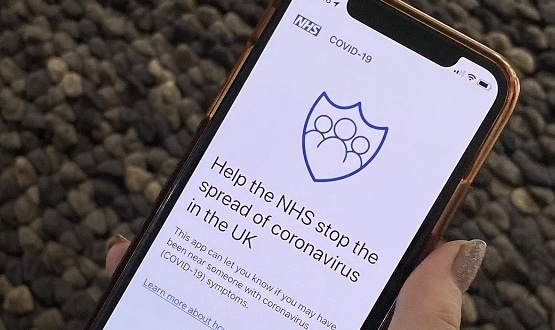Experts react to government’s U-turn on contact-tracing app
- 2 July 2020

The government should ensure ethics and privacy are “correct by design” in its new contact-tracing app, industry leaders have said.
Following the government’s decision to abandon its contact-tracing app in favour of Apple and Google’s technology, Digital Health News asked a number of experts what they thought of the U-turn.
The decision to switch to a decentralised model, working with Apple and Google to develop a companion style app, was largely seen as an opportunity for NHSX to get the design of its new app right.
Kathy Farndon, Vice-President of BCS, The Chartered Institute for IT, said: “A majority of BCS members reported in our May survey that they did not believe the proposed model would work as intended and had concerns about the reliance on a centralised database.
“The government now has the opportunity to work collaboratively, communicate clearly and show that ‘ethical and correct by design, and privacy by default’ values will be integral to any new version put before the public.”
She added that contact-tracing apps, combined with testing, could make a significant contribution to minimising the spread of Covid-19, when done “ethically and competently”.
BCS had previously warned the right privacy measures need to be in place to encourage the public to use the technology.
Sam Smith, coordinator at privacy group medConfidential, said the U-turn was “inevitable”.
“It was both inevitable and illustrative, the only question was how they’d handle the change,” he told Digital Health News.
“NHSX entirely reasonably started doing what was best at the time in early March, but when circumstances changed and gave them new and better options, there was a political doubling down on past decisions.”
Less information
Professor Eerke Boiten, professor in cyber security at De Montfort University in Leicester, said the government had “reduced its ambition” adding the switch to a decentralised model would reduce the NHS’s access to information to inform its response to the virus.
“The UK government have certainly reduced their ambition by moving to the Google-Apple basis for their app: there will be much less information from the app to support central planning, and next to no research data coming from the app, nor will they be able to detect asymptomatic super-spreaders,” he said.
“Whether this is a serious step backward depends on whether any of those was their real motivation for a centralised solution – it might also have been that they simply couldn’t support a decentralised app based on confirmed cases adequately, lacking the testing capacity to rule out false positives quickly.”
“The main purpose of a contact tracing app is to find infected people quickly, and this purpose has broad support within the population; adding other purposes appears to have diluted popular support and from that, chances of uptake and hence success of the primary purpose,” he added.
Digital Health News asked its readers what they thought of the government’s U-tun, with more 67% of the 175 surveyed saying they thought the decision to abandon the app in its current form was the right one.
The Digital Health news team have discussed the decision in detail in the latest Unplugged podcast.





